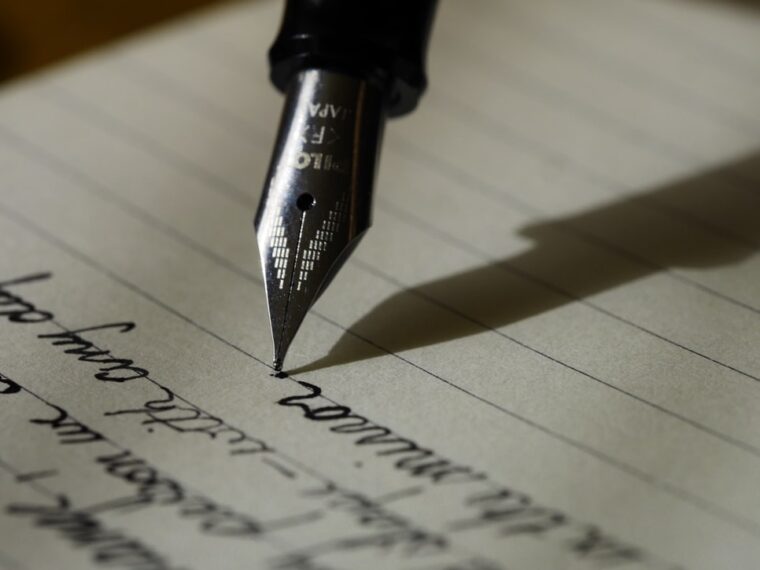One of the most important aspects of an assistant’s role is effective minute taking. It is down to them to write down all of the vital information discussed in a meeting in a coherent and understandable way for others to read and understand.
Minute taking is an essential part of daily meetings and conferences, and many rely on this to remember the important details that can be quickly forgotten straight after a meeting has come to an end. Keeping a note of minutes can remind employees of pressing tasks that need to be completed, and maintaining a record of essential information that the company can hold onto for the future.
It can be quite a daunting and stressful task, even for the most experienced assistant. So we have put together a guide filled with tips on good minute taking and all the tools needed to become the ultimate minute taker.
So, for all those struggling to write minutes for meetings and don’t enjoy the process at all, here are some tips on good minute taking that will help you get them finished, circulated, and off of your to-do list as quickly as possible.

Listen
This is probably the most obvious tip, but it can be neglected in a particularly stretched out meeting that has lasted longer than your attention span cares for it to last. This is the most important tip to remember as you are required, more than anyone else in that meeting, to listen to everything being discussed. The minute-taker is expected to keep an ear out for any vital pieces of information and essential updates that others may miss or not hear due to being unable to attend the meeting.
Be assertive
Assertiveness is a great quality to have as a good minute taker, as you need to have the confidence to be able to speak up in a meeting (where appropriate) and clarify any points that are unclear. This is important as it is best to make sure you are writing down accurate information rather than continuing to jot down incorrect points due to confusion and a lack of clarification.
Finalize notes as quickly as possible
There is always a temptation to leave this to the last minute, but it really isn’t a good idea to do so. Try your best to get the notes you have taken down into a publishable format as soon as you can, ideally by the following day. Even if you are an expert at minute taking, there may still be parts of the meeting that you forget and you can’t quite decipher what you meant when you made the notes. Also, if you get the minutes circulated out quickly, you will give those with required actions an early enough opportunity and a reminder to complete their work, saving you time when it comes to chasing them before the following meeting rolls around.

Be organized
A good minute taker comes to the meeting already prepared by having already read the agenda. It is also a great idea to come to the meeting equipped with background papers, the minutes from the previous meeting, and with all the tools needed to carry out effective note-taking, such as pen, paper, highlighters, recording device, or a laptop. Make sure to always carry around an extra pen, just in case.
Remain neutral
As a minute taker, try your best to remain unbiased when typing up your notes. If an argument or disagreement has unfolded during the meeting or someone has stormed out of the room, it isn’t necessary to put this much detail in the minutes at all. However, if your Chairperson indicates that you should include this much level of detail then remember to remain neutral in your tone and choice of vocabulary.
Make sure the minutes are readable
Sometimes minutes can be written in such haste that they become readable only to the minute taker, leaving others not fully understanding what has been written. Make a conscious effort to ensure that your notes are written down in a way that is comprehensible to everyone who will be reading them.

Use the correct grammar
The tense to write minutes in is past tense as this is in the 3rd person, eg. John Smith agreed to distribute the minutes as soon as possible. It is also really recommended to use initials instead of full names as this is a major time and space saver when it comes to writing down notes quickly.
Don’t add unnecessary detail
If a certain piece of work, such as a report or paper, has been heavily criticized in a meeting, there is absolutely no need to write any of these details in the minutes. The best way to deal with such a situation is to note down ‘the paper was noted by the Committee’ and then write down any action points that arose from the discussion on the matter.
Proofread your work
One of the final steps to take when taking minutes is to proofread what you have written down. An effective method of note-taking is to jot all the relevant information on the page as quickly as possible, and then going back a day later to tweak the wording and sentence structure, ensuring it makes sense. The minutes will probably be proofread by at least two other people before they are eventually circulated to the rest of your cohort, so be prepared that some work will be changed.

Become an expert minute-taker
Minute-taking is a very sought after professional skill in several organizations, so working hard to be the best minute-taker you can be is invaluable. Following these tips are a great place to start, and trying your best to improve each tip will only make you a better and more sought after minute taker. Remember not to give up if you are finding it too difficult, and don’t get disheartened if you make a mistake. Just like with most things in your professional life, practice only makes perfect.
